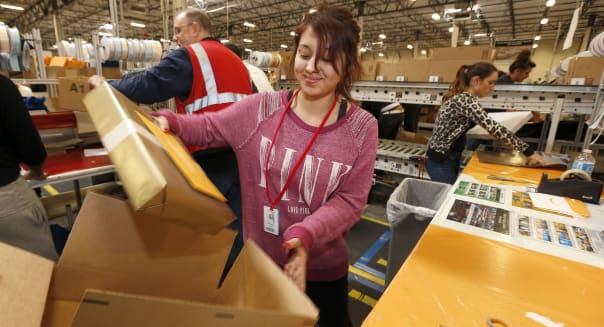Reading This Glassdoor Report Could Have Earned You 13% in 6 Months

"Who knows a company -- any company -- better than the employees who work for it? There's no need to answer. That's actually a rhetorical question, and the answer is 'Nobody.' "
So began our special report in May on Glassdoor's May 2013 survey of "The Top 10 Companies with the Best Business Outlook in the Next 6 Months." And so began the countdown clock, as we began surveilling these companies to see if positive employee sentiment would translate into market-beating profits on their stocks.
Well, six months later (actually, a bit more than six months), we've finally crunched the data, and the results are in:
Glassdoor wins!
Employees Do Know Best
Our aim with this experiment was simple: Observe the eight companies on Glassdoor's list that have publicly traded stocks. Check their stock prices at the beginning of the experiment (May 24), and check where they ended up six months later (Oct. 24). Compare these performances individually -- and as an average of the eight stocks -- to the returns of the nation's 500 biggest companies on the S&P 500 index.
Here's how the results came out:

As you can see, we've painted these results in easy-to-identify colors. The S&P 500 benchmark is dressed in basic black. All stocks that outperformed the S&P's 6.2 percent six-month return are in bright green. Those that posted positive returns but underperformed the S&P are in light green. The single stock on the list that posted both negative stock price performance and underperformed the S&P is in red.
Digging into the Data
So how did these stocks perform, in dollars, cents and percents? From May 24 to Oct. 24:
Amazon.com (AMZN) beat all comers, rising to $332.21 from $261.74 for a 26.9 percent gain.
Yahoo (YHOO) did nearly as well, surging 25.6 percent to $33.08 from $26.33.
Whole Foods Market (WFM) rose to $64.59 from $52.40 -- a 23.3 percent gain.
Shares of Google (GOOG) gained 17.4 percent to $1,025.55 from $873.32.
General Motors (GM) posted a respectable 8.4 percent rise to $35.63 from $32.87.
And the average return from all eight of the publicly traded stocks on Glassdoor's list? 13.3 percent. All that's as compared to the S&P 500 (^GPSC) itself, which rose to $1,752.07 from $1,649.60 for a 6.2 percent gain.
Counting Up the Laggards
Seven of the eight stocks posted positive returns, with five of the eight -- a majority -- outperforming the S&P. But what about the laggards?
Qualcomm (QCOM) and SAP (SAP) posted gains of 4.2 percent and 3.4 percent, respectively -- positive returns, but not enough to match the market's performance. Home Depot (HD) actually declined in value, losing 2.8 percent and underperforming the market as well.
Epilogue
In the subsequent two months following our initial six-month examination period, four stocks -- Google, Yahoo, Amazon, and General Motors -- all continued to outperform the S&P, widening their lead over the rest of the market (which is now up 8 percent since May 24). Home Depot and SAP, while continuing to trail the averages, did at least close the gap a bit.
Meanwhile, %VIRTUAL-article-sponsoredlinks%Qualcomm shifted from a market laggard to an outperformer (gaining 13.5 percent since May 24), while Whole Foods gave up some of its gains (but still beat the S&P).
So what can we learn from all this?
One trial run does not an infallible theory make. However, initial indications suggest that Glassdoor may be on to something. Companies where employees think prospects are improving outperformed the S&P by some pretty significant margins. Had you invested $10,000 spread out among these eight companies in May, by October you'd have been sitting on a $1,330 profit.
And the suggestion we made back in May -- to focus on Amazon, Whole Foods and Qualcomm in particular, because their stocks had been underperforming the stock market just before employees said they were going to do better? They did in fact do better. Much better. (Although it took Qualcomm an extra two months to prove it).
$10,000 invested in those three would have netted you $2,367 in eight months -- nearly three times what the S&P 500 has returned since May. And just in time for Christmas.
Motley Fool contributor Rich Smith has no position in any stocks mentioned. The Motley Fool recommends Amazon.com, General Motors, Google, Home Depot, Whole Foods Market and Yahoo. The Motley Fool owns shares of Amazon.com, Google, Qualcomm and Whole Foods Market. John Mackey, co-CEO of Whole Foods Market, is a member of The Motley Fool's board of directors.

